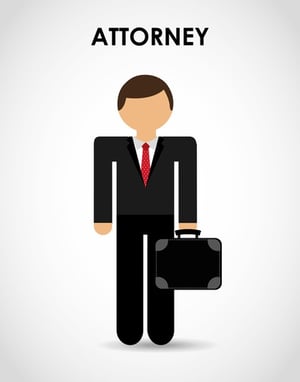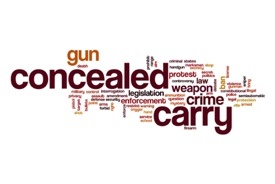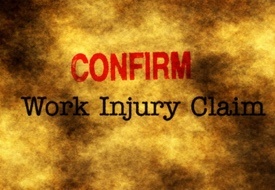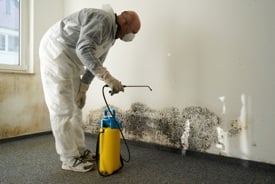 If you’re like most Americans, your life is pretty good right now (probably a lot better than you realize), and you see no reason why that should change in the foreseeable future. Now imagine being blindsided by a serious illness that takes away your good health and puts a significant dent in your income.
If you’re like most Americans, your life is pretty good right now (probably a lot better than you realize), and you see no reason why that should change in the foreseeable future. Now imagine being blindsided by a serious illness that takes away your good health and puts a significant dent in your income.
This is not some doomsday scenario; it happens often. And it can leave a trail of financial stress that can impede the healing process.
Dr. Marius Barnard, the famous South African cardiac surgeon, saw first-hand the effects of the financial and emotional stress of serious illnesses on his patients, and in 1983 he came up with the idea of critical illness insurance, a special form of health insurance, as a way to counteract it.
What is Critical Illness Insurance?
If you are ever diagnosed with a life-altering illness that has been pre-specified in your policy, Critical Illness Insurance will provide you with a lump-sum payment that you can use any way you choose.
Although your health insurace plan will identify what is covered, the following illnesses are typically included:
- Heart attack
- Stroke
- Cancer
- Multiple Sclerosis (MS)
- Organ transplants
- Parkinson’s disease
- Alzheimer’s disease
- HIV treatments
- Blindness
The advantages of critical illness insurance
Your health insurance should pay the bulk of your medical expenses, but think about all the things it doesn’t cover—this is the biggest advantage to critical illness insurance. The lump sum payout from your plan can ensure that you don’t have to face any financial disruptions in addition to coping with a serious medical condition.
Consider these five ways that Critical Illness Insurance can be an economic lifesaver:
- You may have to travel for treatment. Depending on your illness, your doctor may recommend an out-of-state hospital with a successful track record in treating your condition. Without savings or a payout from a critical illness insurance plan, you could be forced to run up your credit card for airfares, hotels, and meals. It might take years to pay off these expenses after you recover.
- You’ll need to pay what your health insurance doesn’t. Copays and deductibles are becoming larger as health insurance premiums increase. And there are always other out-of-pocket expenses with which to contend.
- You’ll need to make your mortgage payments. If you’re like most people, you have a life insurance policy that pays off your mortgage if you die. But like any set of statistics will show, if you are younger, you are much more likely to be disabled by an illness than to die. Part of a lump sum payment could be used to make your mortgage payments while you heal. Imagine the peace of mind that would come from knowing that you and your family can continue living in your house even though you can’t work.
- Modify your home or car. Some critical illnesses—MS, for instance—can take away your mobility. Retrofitting your home or car can restore some of it, but it will be expensive (stair lifts alone can cost $5,000). Doorways may need to be widened to accommodate a wheelchair, and ramps will need to replace steps in some areas of the house. A van that allows wheelchair access to the driver’s seat and hand controls could reach $50,000.
- Maintaining your lifestyle. Everyone gets used to a particular way of life. And when a critical illness hampers it, it can cause emotional distress for the whole family. With the payout you’ll receive, a critical illness health insurance plan can eliminate any worries about your lost income during a critical illness.
In Summary:
Your family will have peace of mind, and you can concentrate on getting better if you have properly planned for a critical illness. Knowing that insurance has covered your financial needs after a critical illness diagnosis will remove any financial stress and facilitate your recovery.
We Can Help With Any Health Insurance Need
 To learn more about Critical Illness Insurance, or for any health insurance need, contact American Insuring Group online or call us at (800) 947-1270 or (610) 775-3848.
To learn more about Critical Illness Insurance, or for any health insurance need, contact American Insuring Group online or call us at (800) 947-1270 or (610) 775-3848.
We'll research plans from across many competing health insurance providers to find the best insurance policy that meets your needs and your budget.
Call or click today to get started!



 Most employers know that to reduce their
Most employers know that to reduce their  To learn more about lowering your workers comp costs,
To learn more about lowering your workers comp costs,  Most medical statistics that you read or hear about are not designed to brighten your day.
Most medical statistics that you read or hear about are not designed to brighten your day. Seek professional assistance before planning for your long-term care. There are a variety of policies from which to choose, from traditional long-term care insurance to hybrid plans that will return your premium should you not need care. There are also decisions to be made within each policy type that may require expert advice.
Seek professional assistance before planning for your long-term care. There are a variety of policies from which to choose, from traditional long-term care insurance to hybrid plans that will return your premium should you not need care. There are also decisions to be made within each policy type that may require expert advice. Hiring a competent workers compensation defense attorney is not an exact science, but it is an important first step in the process of defending your business in a contested workers comp claim, which can impact the cost of your
Hiring a competent workers compensation defense attorney is not an exact science, but it is an important first step in the process of defending your business in a contested workers comp claim, which can impact the cost of your  To learn more about controlling your workers compensation insurance cost,
To learn more about controlling your workers compensation insurance cost,  As a small business owner who allows customers and visitors on your property, you assume the responsibility of providing a reasonably safe environment for them. This responsibility includes warning them about any concealed dangerous conditions. In states with “concealed carry” laws, you might need to post warnings that your sales clerks are armed.
As a small business owner who allows customers and visitors on your property, you assume the responsibility of providing a reasonably safe environment for them. This responsibility includes warning them about any concealed dangerous conditions. In states with “concealed carry” laws, you might need to post warnings that your sales clerks are armed. To learn more about Commercial General Liability Insurance,
To learn more about Commercial General Liability Insurance,  Employers and insurance companies have been using functional capacity evaluations (FCE) for over thirty years. In
Employers and insurance companies have been using functional capacity evaluations (FCE) for over thirty years. In  To learn more about workers compensation insurance,
To learn more about workers compensation insurance,  On the surface, home sharing looks like a simple idea. You, the homeowner, offer accommodations to a guest--a home sharer--in exchange for an agreed-upon fee and, in some cases, help with household tasks.
On the surface, home sharing looks like a simple idea. You, the homeowner, offer accommodations to a guest--a home sharer--in exchange for an agreed-upon fee and, in some cases, help with household tasks. Before you commit to becoming a host, check with American Insuring Group to understand what your existing homeowner’s policy covers and what exclusions might apply. Then you can purchase a policy that closes all of the gaps.
Before you commit to becoming a host, check with American Insuring Group to understand what your existing homeowner’s policy covers and what exclusions might apply. Then you can purchase a policy that closes all of the gaps. Attention: restoration contractors! You may have lucrative opportunities from an unlikely source—mold. Yes, the fungus that grows in moisture-laden areas of many old homes has created a demand for professional mold remediation services. Done right, you can grow your mold remediation business while controlling your
Attention: restoration contractors! You may have lucrative opportunities from an unlikely source—mold. Yes, the fungus that grows in moisture-laden areas of many old homes has created a demand for professional mold remediation services. Done right, you can grow your mold remediation business while controlling your  To learn more about Commercial General Liability and Contractors Pollution Liability insurance, or for any business insurance need,
To learn more about Commercial General Liability and Contractors Pollution Liability insurance, or for any business insurance need,  Having a freshly constructed building for your business is exciting. It’s the culmination of an undertaking that involved the acquisition of land, working with an architect, hiring a construction company, and picking out the furnishings. After you have completed the project, you will have added a significant investment that you will undoubtedly protect with a well-designed insurance program.
Having a freshly constructed building for your business is exciting. It’s the culmination of an undertaking that involved the acquisition of land, working with an architect, hiring a construction company, and picking out the furnishings. After you have completed the project, you will have added a significant investment that you will undoubtedly protect with a well-designed insurance program. We can help you create a policy that meets the needs of your construction project. As independent insurance agents, we're free to shop among competing providers to help you obtain the best insurance solution at the right price.
We can help you create a policy that meets the needs of your construction project. As independent insurance agents, we're free to shop among competing providers to help you obtain the best insurance solution at the right price. In 1992, 79-year old Stella Liebeck filed a lawsuit against McDonald’s for serving coffee that was too hot. In a product liability case that became known as the “McDonald’s Coffee Case,” the Albuquerque woman sued for injuries she had received after spilling coffee on herself. The basis of the lawsuit centered on insufficient warnings on the cups. After a trial and appeals, the parties settled out of court for an amount of less than $600,000.
In 1992, 79-year old Stella Liebeck filed a lawsuit against McDonald’s for serving coffee that was too hot. In a product liability case that became known as the “McDonald’s Coffee Case,” the Albuquerque woman sued for injuries she had received after spilling coffee on herself. The basis of the lawsuit centered on insufficient warnings on the cups. After a trial and appeals, the parties settled out of court for an amount of less than $600,000. Get the Right Product Liability Insurance
Get the Right Product Liability Insurance 



